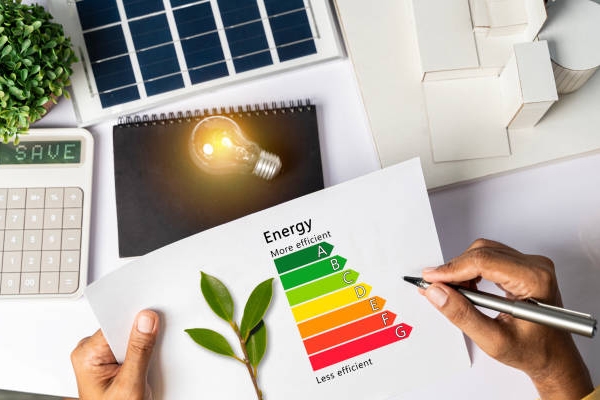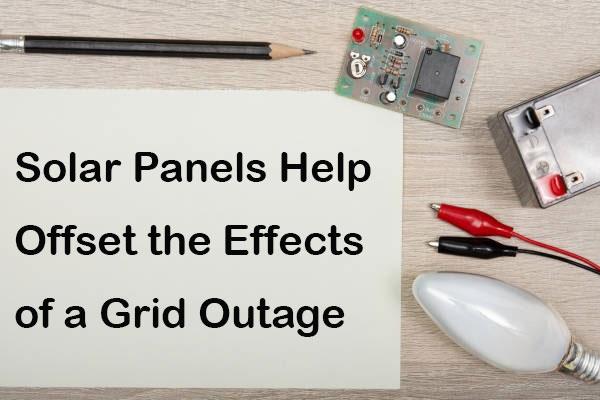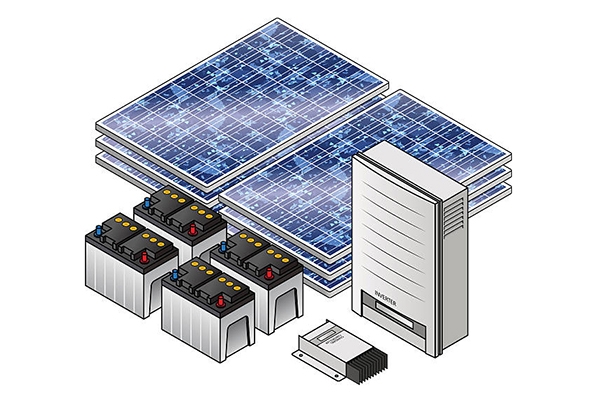As global energy demand continues to grow and climate change intensifies, more and more households are choosing to install solar panels as an environmentally friendly and energy efficient solution. However, the question on many people's minds is: can solar panels continue to generate electricity during a power outage? The answer may be a little disappointing to you because for safety reasons, a grid-tied solar system without a battery cannot continue to generate electricity during a power outage.
However, by using many types of solar panels in conjunction with a battery backup system, you can minimize the inconvenience of a power outage by continuing to enjoy some of your power supply during an outage. In this article, we will explore in detail the mechanisms by which solar systems work during a power outage and describe how you can enhance your energy security with a battery backup system.
Why Don't My Solar Panels Work During a Power Outage?
- The Need for Safety Mechanisms: For safety reasons, grid-connected solar systems without batteries are unable to generate electricity during a power outage. The reason behind this is primarily to protect the safety of electrical workers. When the grid goes down, the solar system's inverter automatically switches to a mode that prevents power from returning to the grid. If the inverter doesn't do this, it poses a danger to electrical workers who are making repairs. They cannot allow power to continue to pass through the lines while they are making repairs, or they could cause a serious safety incident.
- How Inverters Work: An inverter is a device that converts the direct current generated by solar panels into alternating current (AC) to power your home. In the event of a power outage, the inverter immediately disconnects from the grid and signals the power optimizer or photovoltaic link connected to the solar panels to go into a safe state to prevent the electrical load from increasing. This means that even if the solar panels are still capable of generating power during an outage, the inverter prevents that power from entering the home's electrical system.
- Restart Process After Grid Restoration: When power is restored to the grid, the inverter switches back to the proper mode and resumes normal solar production. This process is usually done automatically without human intervention. The inverter monitors the grid voltage and frequency to ensure that the grid is stabilized before reconnecting, thus ensuring safety and proper system operation.

Can Solar Panels Help Offset the Effects of a Grid Outage?
In the event of a power outage, solar panels alone are not enough and a battery backup system is needed to provide additional support. By installing a battery, you can store excess solar energy for use at night or during a grid outage. This way, you can still keep parts of your home running when your non-solar neighbors are stuck in the dark. You can customize your battery backup system in four modes to ensure that your batteries meet your specific needs. These modes include:
- Clean Standby Mode: In this mode, the battery stores energy to power 3-6 protected loads in your home in the event of a power outage. You can choose which devices to prioritize for operation, such as refrigerators, ovens, or electronic devices.
- All-Weather Mode: In this mode, the battery is charged during the day and discharged at night, maximizing the use of solar energy and reducing dependence on the grid.
- Economy Mode: Battery power is used during times of high electricity costs to reduce household electricity costs.
- Self-supply Mode: Use solar and battery power for as long as possible to reduce dependence on the grid and achieve energy self-sufficiency.

Benefits of Installing Solar Panels with a Battery Backup System
By combining solar panels with a battery backup system, you can not only continue to enjoy the power home supply in the event of a power outage, but also gain the following benefits:
- Increased Energy Independence: Reduce your dependence on the public grid and increase your home's energy security.
- Save on Electricity Bills: Reduce the cost of electricity in your home by storing and using self-generated electricity.
- Environmental Protection: Reduce carbon emissions by using clean energy and contribute to environmental protection.
- Increase Property Value: Installing solar panels and battery backup systems can increase the market value of a property.

In some real-life cases, homes with solar panels and battery backup systems have been able to continue to enjoy electricity supply during power outages. For example, during the 2020 California blackout, many homes with solar panels and battery back-up systems were able to maintain basic household power during the outage, greatly reducing the inconvenience of the outage.
Understanding the mechanics of how solar systems work during a power outage is critical to making decisions about whether to install solar panels and battery backup systems. While a grid-tied solar system without batteries cannot continue to generate electricity in the event of a power outage, by installing a battery backup system, you can still enjoy a partial supply of electricity in the event of a power outage, ensuring the continuity of your family's life. Whether it's for safety reasons or to increase energy independence and save money on your electric bill, installing solar panels with a battery backup is a smart choice.
With solar power, there is peace of mind in the event of a power outage. Solar panels alone won't power your home when the grid goes down, but when paired with a battery backup system, they can provide enough power to keep parts of your home running. Visit powerhome's How Solar Panels Work page to learn more. If you're considering installing solar panels and a battery backup system, it's worth contacting a professional solar company for personalized advice and a quote. With proper planning and design, you can maximize the use of solar energy for your home's long-term financial and environmental benefits.
(1).png)
(1).png)